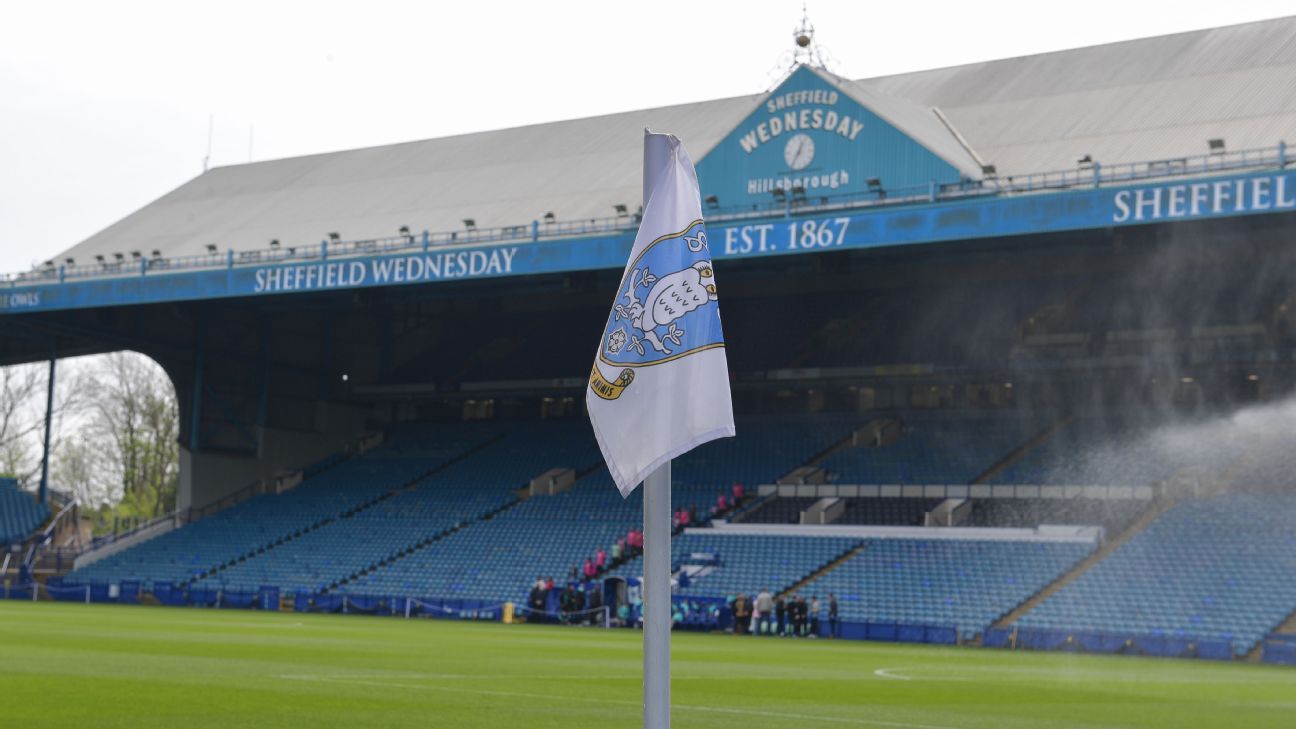In April 1991, John Sheridan led Sheffield Wednesday to a surprising 1-0 victory over Manchester United in the League Cup final. This win was not just a stunning achievement; it marked an important moment in the club’s history, overshadowing their present struggles.
Currently, Wednesday, which sits third in the second tier, has faced significant challenges, including financial troubles that have impacted their ability to perform on the field. Despite recent highs, such as dramatic playoff comebacks, the club’s current financial woes mean they are on the brink of disaster, with protests planned against controversial owner Dejphon Chansiri during their upcoming season opener against Leicester City.
The situation raises several questions: What exactly is wrong at Wednesday? And why does it matter?
– Captain excludes opener strikes
– Fans protest during the opening championship game
– Coach Röhl departs just days before the season
Why is Sheffield Wednesday’s history so significant?
Established in 1867, Sheffield Wednesday is one of the oldest clubs in England, with only four others having a longer history in league football. However, despite a glorious past, including being one of the major clubs in the early 20th century with 12 major trophies, they haven’t tasted significant success in decades, claiming their last League Cup in 1991.
The club has spent much of the 21st century outside the Premier League and currently struggles to return while being the largest club in terms of impact at their current level. Previous attempts to strengthen their management didn’t pan out, further complicating their recovery prospects.
Who is Dejphon Chansiri?
Chansiri, a Thai businessman, became the owner of Sheffield Wednesday in 2015, but details about his funding and management style remain vague. He is affiliated with the Thai Union Group, a leading seafood company, but his absence of involvement with the company’s board raises concerns about his commitment to the club.
Under his ownership, Wednesday showed promise at first but soon struggled financially and operationally. Chansiri’s approach has been criticized for lacking a proper management structure, placing all decision-making in his hands.
What’s the core issue at Sheffield Wednesday?
The problems came to light significantly in July 2020, when the club faced a 12-point deduction due to failing to comply with Profit and Sustainability Rules. This was attributed to Chansiri’s inability to complete necessary paperwork related to the sale of the club’s ground. Although an appeal reduced this to six points, the club was relegated to League One, highlighting ongoing financial difficulties.
Since then, the situation has worsened, with repeated delays in payments to players and staff. The most recent issues include:
- Chansiri missing payroll for players and staff.
- The EFL placing transfer embargos on the club due to unpaid player salaries.
- Key players opting to leave due to the club’s financial instability.
- Even the club’s coach departed amid operational turmoil.
- Facilities, like the North Stand, were closed for safety concerns, compounding the financial distress.
Currently, the club has a limited roster and hasn’t participated in any preseason friendly matches as the new coaching staff hasn’t been secured.
What is the EFL doing about the situation?
The EFL has stated concerns but lacks concrete measures to ensure the club’s stability. While there have been discussions with fan groups, the league’s powers are limited when it comes to forcing owners to sell or manage clubs better.
Recent regulatory discussions in the UK suggest potential changes, but time is running out for Sheffield Wednesday.
Can the club survive?
How the club will navigate the season largely relies on Chansiri’s financial ability and willingness to invest. With ongoing payroll issues and a depleted team, their future hangs in the balance. The EFL has faced criticism for its response, as it seems unlikely that swift action will be taken to avoid a repeat of past failures like Bury’s demise.
Can players stage walkouts?
Following the last-minute wage delays, players considered refusing to compete in upcoming matches. Despite recent contract extensions to some, they’ve expressed solidarity with teammates facing similar issues, indicating that action could be on the horizon.
What is the fan response?
Frustrations among fans have escalated, leading to protests against Chansiri’s ownership. These actions are expected to peak during the televised opener against Leicester City, with calls for collective protests aimed at grabbing media attention and pressuring the ownership to address ongoing issues.
What’s next for Wednesday?
Currently, there’s a sense of stagnation regarding Sheffield Wednesday’s future, with many believing the only solution is a change in ownership. However, the prospect of a sale doesn’t seem imminent, as Chansiri remains reluctant to modify his asking price.
Given the current team dynamics, including a shortage of experienced players and potential penalties from the EFL, the club’s situation looks bleak. The ultimate control lies with Chansiri, and without a change, the team risks losing further ground and reputation.
If a sale does take place, the new ownership will need to address existing transfer embargoes, limiting player acquisitions until 2027.
Fan Take: This situation highlights the broader implications of ownership and financial stability in football, as clubs like Sheffield Wednesday face dire consequences. For fans, these struggles serve as a harsh reminder of the vulnerability of even the most storied clubs, emphasizing the need for responsible management in the sport.



